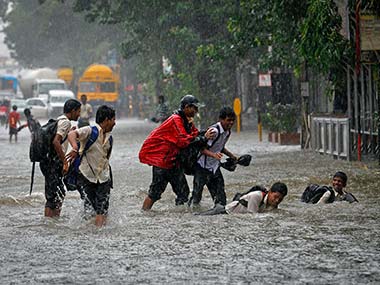Gopal Dukhande was a kindly old man who could make fiery speeches against any mischief that was perceived as being against public good. A socialist, he could often be found at the Janata Dal office near Nariman Point in Mumbai. He hardly ever had any personal grievances or an axe to grind, though one day he was furious. He had stumbled on a Mumbai footpath because it was badly maintained, as if it was meant to cause harm to its users.
That day, the good man stormed into the office of the Municipal Commissioner and asked, “Did you ever travel overseas and walk on a sidewalk, which you don’t do in India?”
The bewildered city official said he had; to which Dukhande shot back: “Then why don’t you ensure our footpaths are like those there?”
The official did not know what to say, except dish out a load of jargon.
Dukhande, who retired to his Sawantwadi home towards the dusk of his life stormed into my consciousness when reading an item in the Delhi edition of The Indian Express on Friday. It reported that an IAS official fell into a manhole while he was out on a morning walk.
After fracturing his leg, he wrote to chief minister Arvind Kejriwal about the “negligent attitude towards the general public”. The fact that it took place near Raj Niwas, the official residence of the Lt Governor, only raised questions about conditions elsewhere in the city.
The official, The Pioneer said, has demanded “strict action against erring officials of PWD, TPDDL and North Delhi Municipal Corporation (NDMC)”. It added , the incident was a “telling commentary on the poor conditions of roads in the national Capital”.
The newspaper, however, erred, because it was not “a commentary”, but a daily experience for residents of any town or city. It could be worse in a village, which has not yet developed. If a village gets a road, it makes news.
The point is newspapers and we do not pay much attention to such incidents when it involves the common man. Had it not been an IAS official, in this case a Secretary of Culture in the Delhi Government, but an ordinary Delhi_wallah_ the incident may not have been noticed at all. The common denizen of any city has learnt to adapt to such conditions because he knows that his complaint would not be heard, or acted upon.
The Delhi bureaucrat pointed out how he had to go to Ambedkar Hospital for proper treatment.
The Pioneer quoted him as saying:
“When I visited Hindu Rao Hospital, the doctor available in casualty ward injected ATS and suggested to contract CMO Orthopaedic at first floor. When I somehow climbed to the first floor, I found no doctor there and returned back (sic) and got the dressing done from a chemist shop.”
His story brings to mind the plight of two children, who died of dengue after being taken from one hospital to another. They succumbed to neglect laced with insolence, a fact which set ablaze the television news channels.
Unlike the bureaucrat’s, theirs was a common occurrence. Not just in medicare but in every other aspect of life where they have, or are supposed to have, support from the public institutions.
Striving to secure one’s rights is an uphill task. Ask Kanthi Kannan of Hyderbad who campaigns for the right to walk. At one point she appealed to AP Human Rights Commission, citing how the right to life included the security of a safe footpath.
In Mumbai, because sidewalks are encroached upon, people walk on the carriageways of roads. They find it quicker and would rather risk life and limb than negotiate a footpath, where despite Supreme Court orders, the occupation by hawkers has not been resolved.
So, the Delhi incident will be seen as an one-off and some activity seen. But then somewhere an open manhole, an open gutter, a poorly functioning public hospital or a badly run government school will claim another victim, unseen and unheard by us.


)




)
)
)
)
)
)
)
)